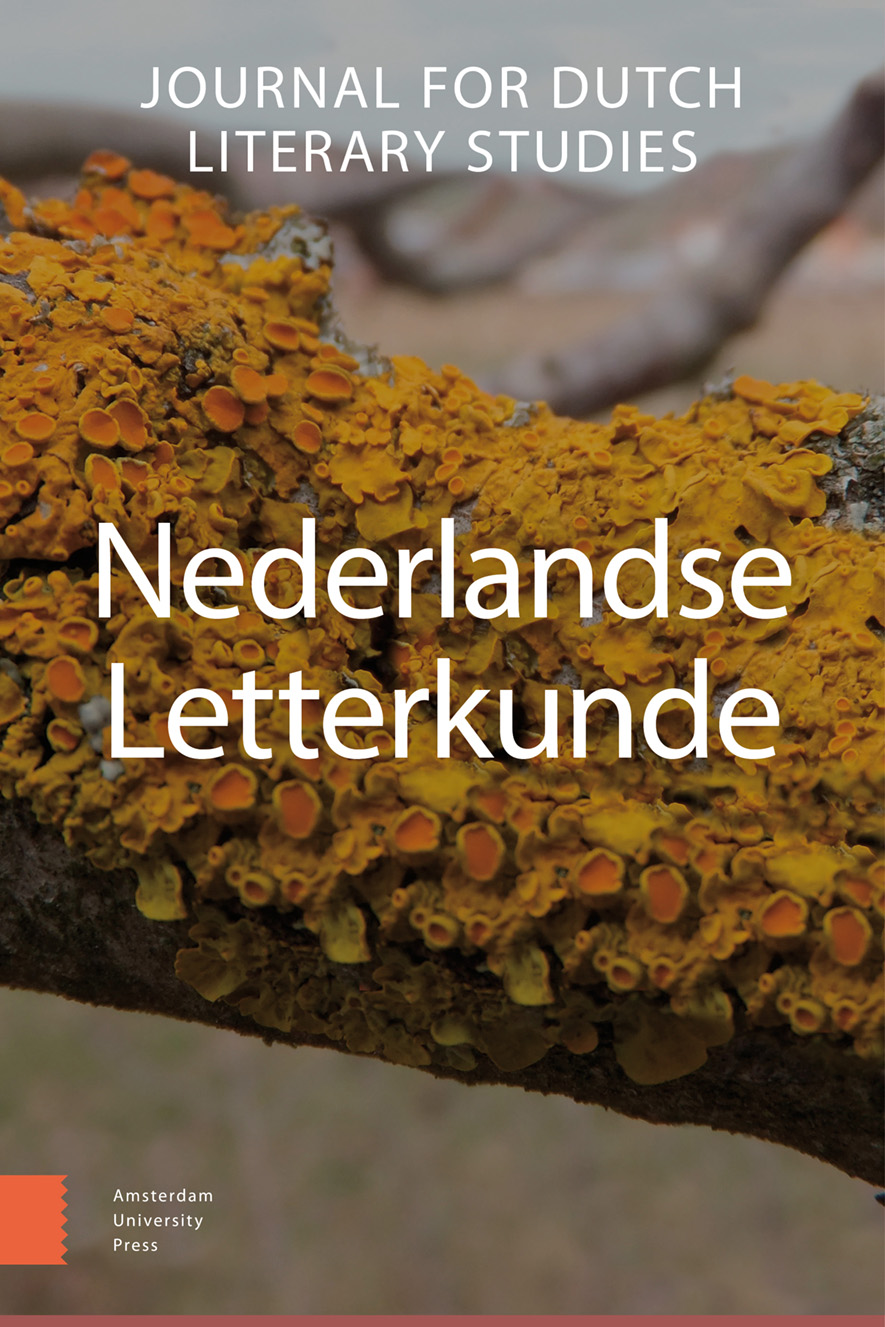- Home
- A-Z Publications
- Nederlandse Letterkunde
- Previous Issues
- Volume 22, Issue 1, 2017
Nederlandse Letterkunde - Volume 22, Issue 1, 2017
Volume 22, Issue 1, 2017
Language:
English
-
-
oa ‘Nach dem Holländischen Jost van Vondels’
More LessAbstract ‘Nach dem Holländischen Jost van Vondels’. The seventeenth-century Maria Stuart-translation from the Saxion lawyer Christoph Kormart Literary translations had an important role in the circulation of political ideas in Early Modern Europe. This article shows how the Saxon lawyer Christoph Kormart used Vondel’s martyr play Maria Stuart (1646) as a political instrument. In Saxony, elector Johann Georg II was not a Read More
-
-
-
oa Een Nederlandse calvinist in Amerika
More LessAuthors: Daan Lameijer & Bram IevenAbstract A Dutch Calvinist in the United States: Postsecular Critique in The Blood of the Lamb (1961) by Peter de Vries With The Blood of the Lamb, Peter de Vries has written a novel that can be qualified as a typical Dutch novel about secularization; but the novel is not Dutch. The Blood of the Lamb is written by an American author of Dutch descent. In this article, Lameijer and Ieven argue that De Vries’s way of dealing with reli Read More
-
-
-
oa (On)conventioneel lezen
More LessAbstract (Un)conventional reading. Old genres, new novels, timeless frames In this paper, I want to present an approach to read complex novels: genre-reading. Adopting this new approach, a genre and its conventions are used as a frame in order to guide the reader’s interpretation process. This procedure is illustrated with the example of the Dutch novel The Blessed Ones (De gelukzaligen) by Willem Brakman (1997), which i Read More
-
Volumes & issues
Most Read This Month
Article
content/journals/13845829
Journal
10
5
false
en


